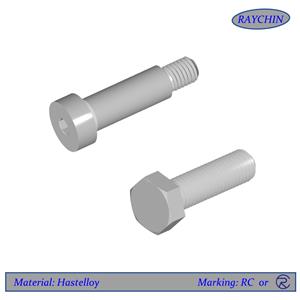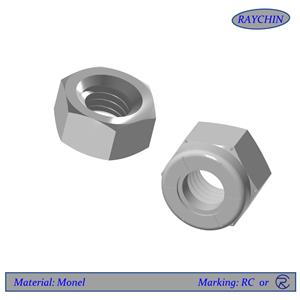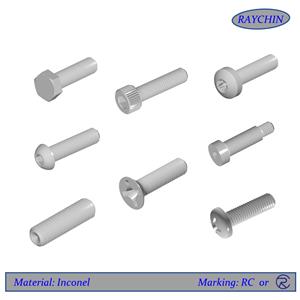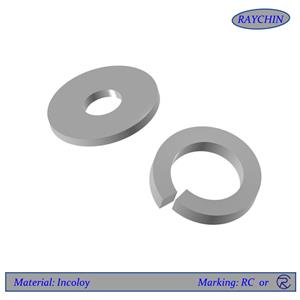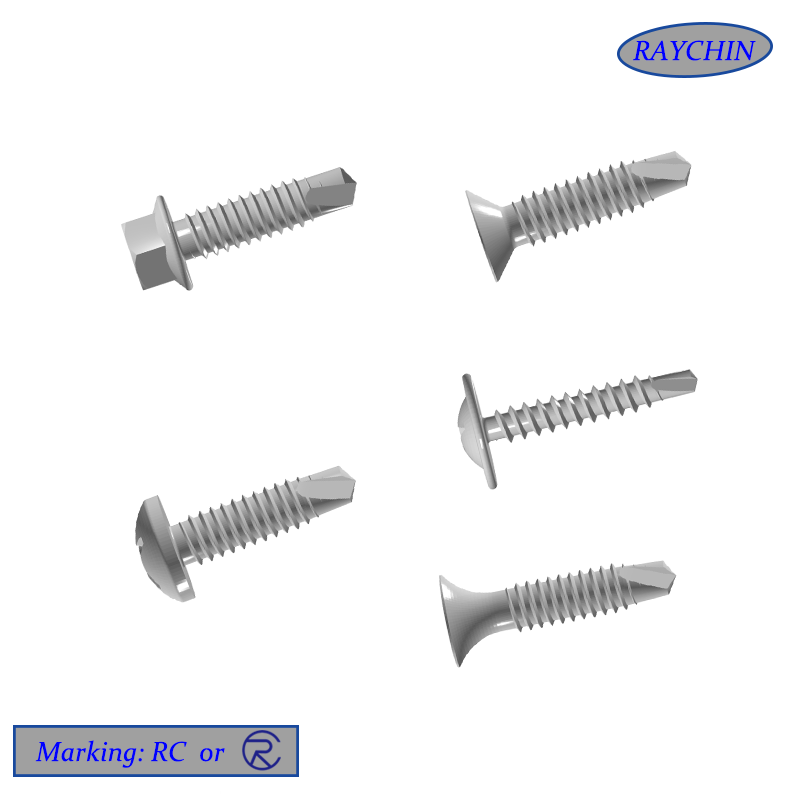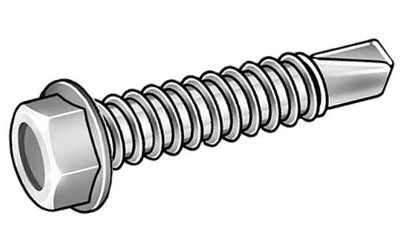Duplex 2205 and Super Duplex 2507 self-drilling screws contain both the drilling and fastening mechanisms all in one – saving time and effort. These unique screws have a cutting tip, which eliminates the need to drill a pilot hole before installing the bolt. Duplex self-drilling screws are ideal for high strength applications – offering twice the yield strength of annealed austenitic stainless steels like 316 grades. This allows for more wear resistant cutting tips and a much more durable head. In addition, Duplex 2205 and Super Duplex 2507 provides improved saltwater corrosion protection to 300 series stainless. In particular, Duplex bolts offer excellent resistance to localized corrosion such crevice and pitting, as well as stress corrosion cracking. This corrosion resistance makes Duplex self-drilling screws ideal for harsh marine and saltwater environments where a fast and reliable fastening solution is needed. Head Style Drill Tip Bolt Sizes In Stock & Custom Availability Neoprene / EPDM Washers |

Self Drilling Screws
Brand RAYCHIN
Product origin China
Delivery time 5-35 DAYS
Self Drilling Screws
RAYCHIN is a manufacturer and worldwide supplier of standard & custom Self Drilling Screws including those manufactured from the following materials: Duplex S31803, Duplex S32205 and Super Duplex S32750,Carbon Steel, Stainless Steel
Self Drilling Screws
Self-drilling screws can be identified by the drill bit shaped point of the screw and are designed for a variety of applications such as fastening metal to metal and metal to wood. Self-drilling screws do not require a pilot hole, which accelerates installation time and lowers the cost and need of additional drill bits. This extra functionality and cost saving feature makes self-drilling screws the clear choice for metal building construction. The drill points are numbers #1 through #5 and the amount of steel they can drill through increases as the numbered point increases. Typically, self-drilling screws are used in light gauge applications but a #5 drill point can drill through and fasten up 1/2" of steel. During installation, self-drilling screws will also tap threads to a degree.
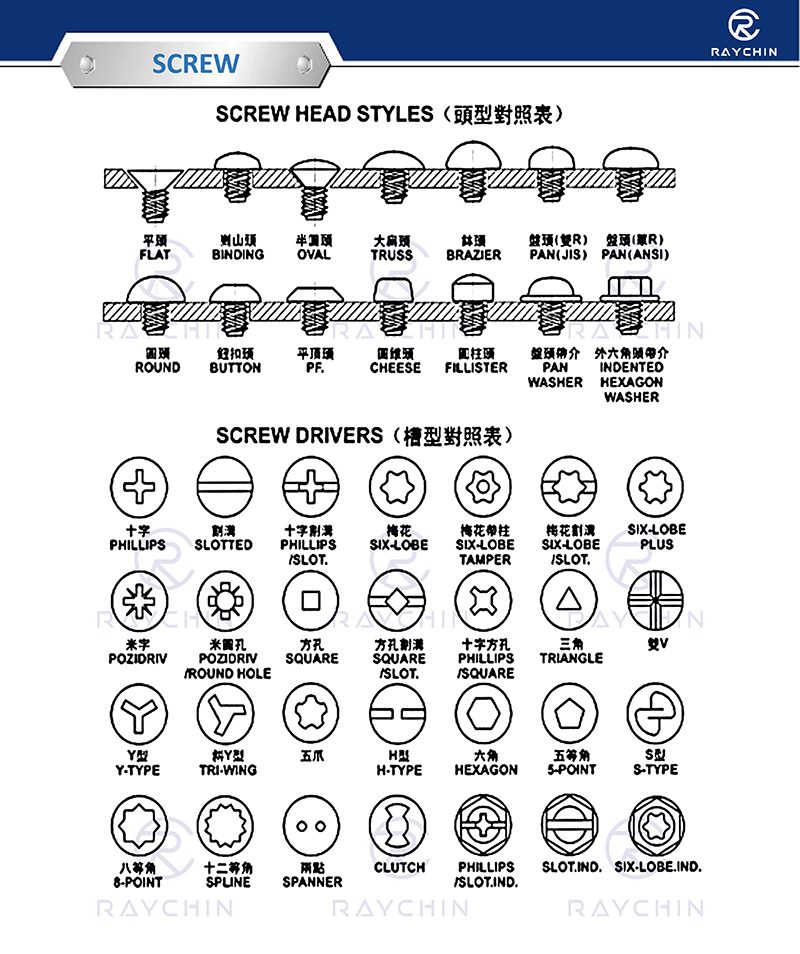
Length of Thread:
Type BSD Screws For screws of nominal lengths equal to or shorter than 1.50 in., the full form threads shall extend close to the head such that the specified minor diameter limits are maintained to within one pitch (thread), or closer if practicable, of the underside of the head. For screws of nominal lengths longer than 1.50 in., the length of full form thread shall be as specified by the negotiation.
Type CSD Screws For screws of nominal lengths equal to or shorter than 1.50 in., the full form threads shall extend close to the head such that the specified major diameter limits are maintained to within two pitches (threads), or closer if practicable, ofthe underside ofthe head. For screws of nominal lengths longer than 1.50 in., the length of full form thread shall be as specified by the negotiation.
Self drilling screws drill, tap and fasten in a continuous operation. The drilling function is accomplished by the unthreaded point, which resembles a twist drill bit. After the material is penetrated and the threads come in contact with the mating surface, the taping and fastening operation begins. Self drilling screws offer cost savings in terms of assembly time because they can fasten material without a pre-drilled or punched hole. They are used to attach metal to metal; wood to metal; and drywall, cement board and wire lath to metal studs. A secure joint is ensured because the drill point is always the right size—no need to fret about a mismatched hole caused by a worn or wrong size drill bit. And, being a blind fastener, access to only one side of the material is needed. They are also known as: drill screws. Due to the relatively high driving speed required for the drilling operation (in the range of 2000 - 3000 RPM), power drivers are used to install self drilling screws.
Both coarse and fine threads are available and are standard right-hand. Coarse threads—designated Type BSD—are tapping screw Type B spaced threads. Fine threads, referred to as Type CSD, are tapping screw Type C threads that approximate the Unified series of machine screw diameter/pitch combinations (Type C is now considered obsolete so refer to Types D, F, G and T for thread dimensions). In general, coarse threads are used to fasten metal to metal and fine threads to attach wood to metal. When shopping for self drilling screws you'll likely find that the type—BSD and CSD—won't be specified. If you need to know, it can be determined by screw size and the number of threads per inch. To remember the two types, think of "BSD" as Type "B" spaced threads and "SD" for self drilling. "CSD" is Type C machine screw threads and self drilling.
There are five different drill points, identified by number and in order of increasing length. #1, the shortest, is rather uncommon and is about 15 - 35% shorter than a #2 point based on the same screw size; it's found on screws too short to accommodate a #2 point and still have a sufficient number of threads to engage the material. #2 and #3 are the most common point sizes, while #4 and #5, the longest two points, are used for thicker material. Drill capacity, which is the minimum and maximum material thickness the screw is intended to drill, varies by point length and screw diameter. To avoid point breakage, the drill point must completely penetrate the material before thread pick-up occurs because the screw advances faster when tapping than drilling.
Recommended driving speed for most efficient drilling is also different for the different sizes. For example, one manufacturer indicates the drill capacity of a #8 screw with a #2 point is 0.035 - 0.100" and recommends a drill speed of 2500 RPM. A #12 screw with a #5 point is rated for 0.125 - 0.500" material thickness at 1500 RPM. For best results, always follow the screw manufacturer's guidelines but, in general, 2000 to 3000 RPM and end pressures between 25 and 65 pounds should produce satisfactory results for most applications.
Common sizes (diameters) of self drilling screws, in whole numbers and fractional inches, range from #6 to #14 and 1/4". Lengths span from about 3/8" to 6". When choosing a length, keep in mind that the drill point and threads must each be longer than the total thickness of the material being fastened.
Popular head styles include bugle, flat, hex washer, modified truss (round washer), oval, pan, pancake, trim and wafer. Drive styles are usually hex, Phillips and square drive. Measure the length of hex washer, modified truss, pan and pancake heads from under the head to the tip. Bugle, flat, trim and wafer heads are measured from the top of their head to the tip. Oval heads are measured from the largest diameter point of the head (where the oval top meets the conical bearing surface) to the tip. In all cases, the length of the drill point is included in the measurement.
Most self drilling screws are heat treated steel. Zinc plating is common, which provides moderate corrosion protection, while those that are black oxide or phosphate coated, have minimal protection. A special coating that is ACQ compatible is used in pressure treated wood to metal applications. Stainless steel self drilling screws are also available.
Some hex washer head screws have a bonded washer for a leak resistant seal. Avoid using a magnetic bit or socket with self sealing self drilling screws and ferrous materials (steel, for example) because magnetically attracted chips may compromise the seal. Self drilling screws intended for wood to metal applications have wings adjacent to the drill point that ream an oversized hole in the wood to prevent "jacking" (separation of the wood and base material); the wings break off when they contact the metal.
Nuts are not used with self drilling screws and washers are seldom used although self sealing washers are an exception.
Refer to Society of Automotive Engineers Standard SAE J78, Steel Self-Drilling Tapping Screws, and Industrial Fasteners Institute IFI-113, Steel Self-Drilling Tapping Screws, for specifications relating to self drilling screws.

